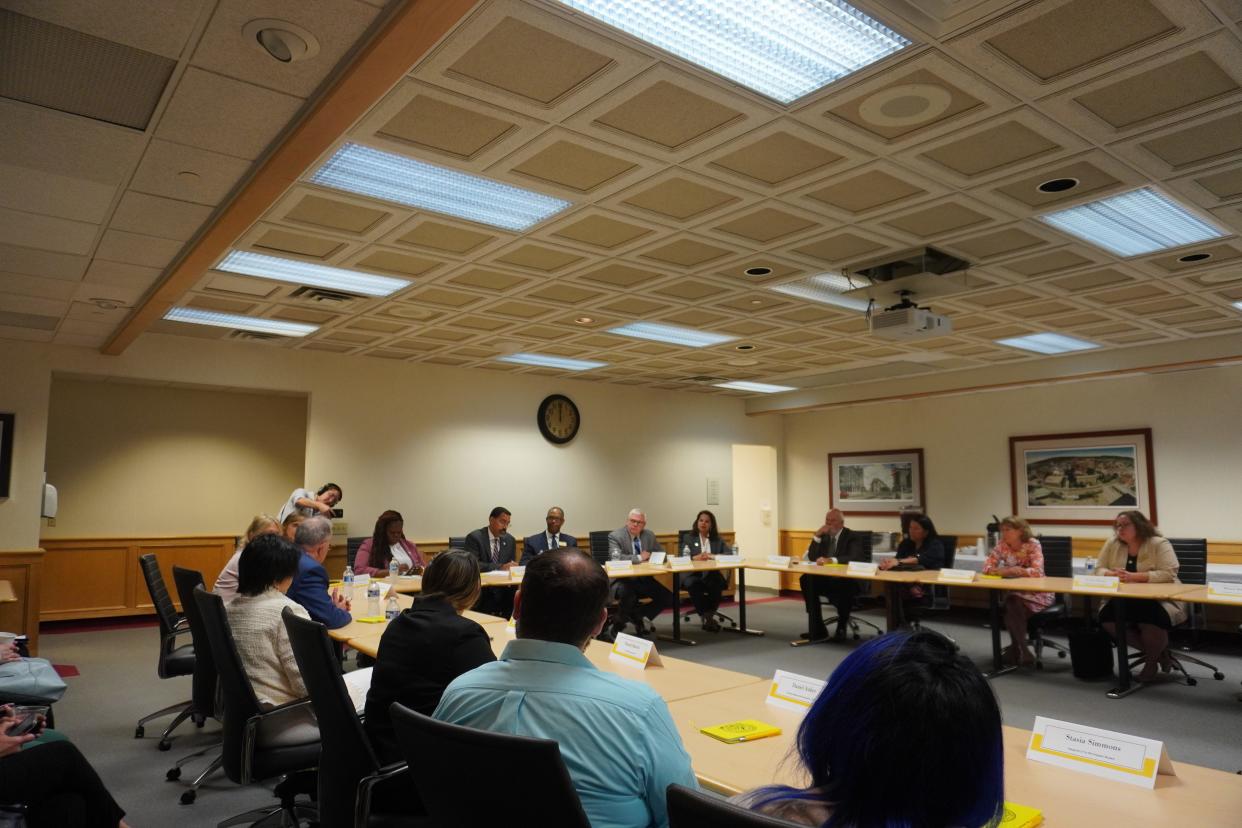NYS allocates annual funding for workforce development, mental health at SUNY Broome
During a visit to SUNY Broome Community College, SUNY Chancellor John King Jr. announced $8 million in recurring annual funding to SUNY community colleges throughout the state.
The funding increase, which is the first of its kind in almost 10 years, will be funded through additional Direct State Tax Support. The funding specifically aims to expand the state's healthcare training pipeline, a key factor due to projections anticipating a severe staffing shortage in the next 10 years.
The funding will not only expand healthcare training, but aims to increase enrollment and completion of healthcare programs across SUNY community colleges. The funding will also go toward additional mental health support for SUNY students. In total, SUNY Broome will receive $450,000, with $350,000 going toward workforce development, and $100,000 used to hire a case manager focused on mental health.
$8 million for SUNY community colleges announced at SUNY Broome
King was joined by SUNY Broome President Tony Hawkins, local political and healthcare leaders and school officials for a tour of the Decker Health Science Center followed by a roundtable healthcare discussion Monday.
During the discussion, leaders identified difficulties regarding the healthcare workforce as a whole, and expressed their willingness to work together to address the problem in the future. According to data provided by the New York State Department of Labor, projections show that by 2030, there will be a shortage of over 180,000 positions across healthcare fields.

According to Hawkins, the $8 million in funding will assist in hiring new faculty, increasing enrollment and provide a much needed boost to the healthcare workforce in the state.
"There is no greater priority for our college than to support both the academic as well as the non-academic needs of our students," said Hawkins. "To support their mental, physical and social wellbeing, and to make sure they are able to accomplish their goals of a college degree as well as work."
King said that the increased funding was a win for the SUNY system, and for healthcare throughout the state.
"The Decker Health Science Center is a gem for this campus and this community, and our roundtable on healthcare workforce development gave us an opportunity for discussion about the needs of the community, the campus and our students," said King. "One of the most exciting victories in the year of big budget grants for SUNY was the inclusion of $8 million of new, annual recurring funding for community colleges."
More: Binghamton Pride Coalition: How this group has led LGBTQIA+ events for 19 years
King also put emphasis on the mental health side of the funding.
"Everyone should understand that mental health is a priority for SUNY, and for each of our campuses in this post-pandemic era," said King. "The mental health challenges of students are a pressing concern of faculty, staff, family members and students themselves. The problem that always existed, but has seemingly been made worse by the pandemic, social media, intense political conflict and uncertainty of every kind."
According to State Senator Lea Webb, community colleges are the cornerstone of local employment and workforce development.
"The work that is being done here at our community colleges — it can't be understated," said Webb. "Our community colleges are literally the nexus point for workforce development because the students that come here, whether they are nontraditional students or traditional students, they stay here. When we talk about filling those gaps when it comes to employment opportunities, our community colleges are leading the way."
This article originally appeared on Binghamton Press & Sun-Bulletin: SUNY community colleges get $8 million to boost healthcare workforce
